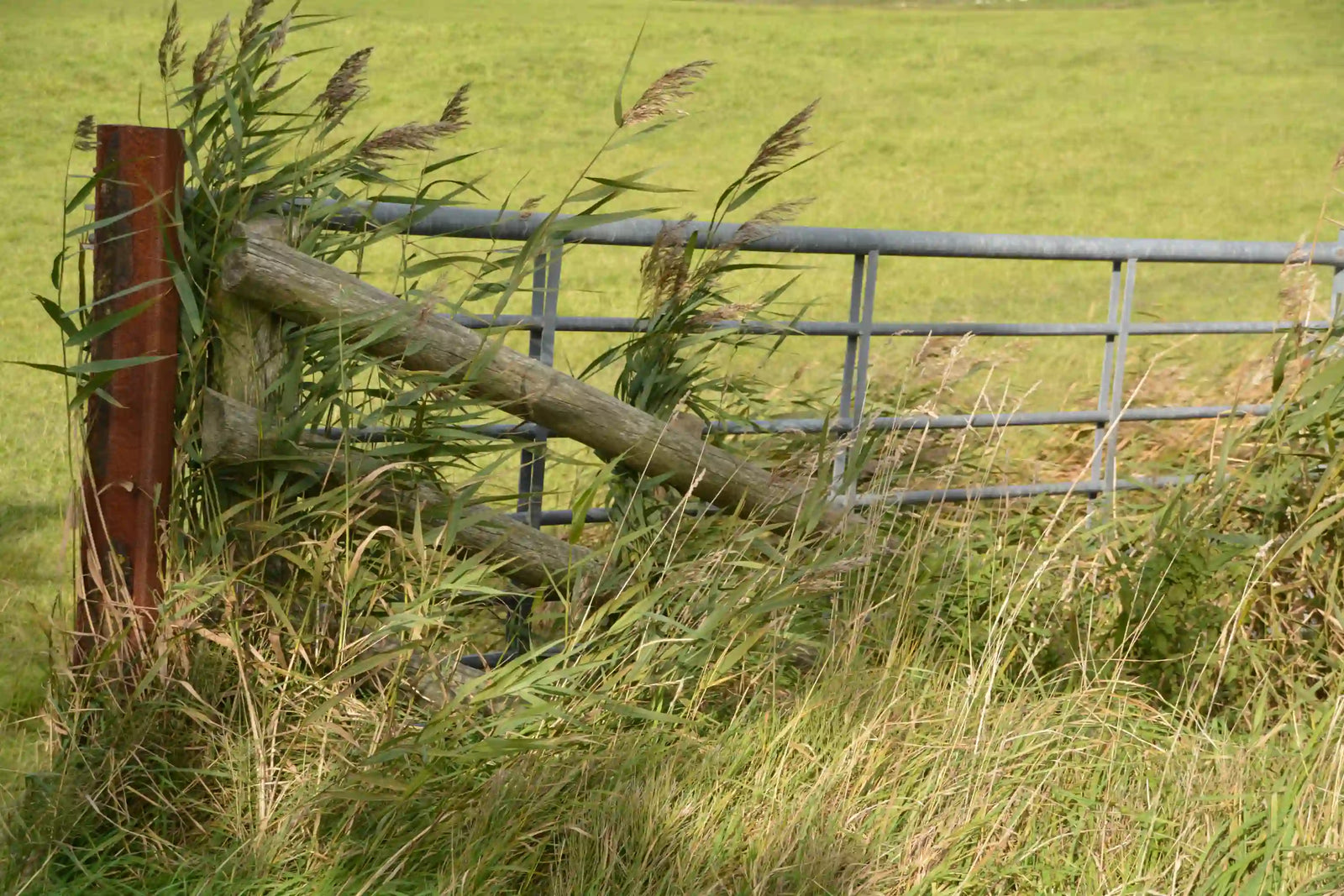Have you ever wondered what it would be like to just wander off without worrying about property boundaries? In some countries, that's a reality! Everyman's right - known internationally as the "right to roam" - allows you to roam through forests, camp by remote lakes and enjoy nature to the full, even if the land belongs to someone else. For us Germans, who grew up with prohibition signs and "private property" notices, this sounds almost too good to be true. But in Scandinavia and some other regions of Europe, this freedom is part of the cultural heritage. In this article, you'll find out all about this fascinating right and how you can make use of it on your travels.
Table of contents
What is the Everyman's Right or Right to Roam?
In which countries does Everyman's Right apply?
What are the limits of the right of public access?
What do travelers have to consider when using the right to roam in different countries?
What activities are permitted under the right of public access?
Conclusion
What is the Everyman's Right or Right to Roam?
The right to roam is a fascinating concept that is deeply rooted in Nordic culture. At its core, it grants you the right to roam freely in nature - even on private land. The basic idea is simple: nature belongs to everyone and should be accessible to everyone.
Core aspects of everyman's right:
- Basic principle: Free access to nature for recreational purposes
- Scope of application: Both public and private land
- Guiding principle: "Do not disturb, do not destroy"
- Cultural significance: Part of the Nordic understanding of nature
- Responsibility: Freedom goes hand in hand with duties to protect nature
Historically, these rights originated centuries ago. In Scandinavian countries, the everyman's right developed from old customary rights that allowed people to travel through unpopulated areas and use nature's resources in moderation. The right to roam is based on a deep respect for nature and the idea that land is not only property but also a common resource.
For nature lovers and outdoor enthusiasts, this right is a real blessing. It allows you to explore the unspoiled countryside away from the crowded tourist trails. The right of public access is more than just a law - it shapes the relationship between people and nature in the countries where it applies.
Unlike in Germany, where access to private land is severely restricted, the Scandinavian Everyman's Right allows you to hike across meadows, camp in forests and swim in lakes - provided you follow certain rules and show respect for the environment and the privacy of others. The principle is: "Do not disturb, do not destroy."
In which countries does the Everyman's Right apply?
Everyman's right has different forms in different countries, with the Nordic countries offering the most comprehensive rights. Here is an overview of where you can enjoy the right to roam:
Everyman's right has different forms in different countries, with the Nordic countries offering the most comprehensive rights. Here is an overview in table form:
| Country | Local name | Special features | Camping regulations |
|---|---|---|---|
| Sweden | Allemansrätt | Anchored in the constitution, particularly comprehensive | Short-term camping permitted, distance from residential buildings required |
| Norway | Allemannsretten | Also includes boating on private beaches | Two-night rule: Max. 2 nights in one place |
| Finland | Jokamiehenoikeus | Generous picking rights for berries and mushrooms | Short-term camping in nature allowed |
| Denmark | - | More restricted than in other Nordic countries | Only allowed on designated sites |
| Scotland | Right to Roam | Since Land Reform Act 2003, very progressive | Wild camping allowed with restrictions |
| England/Wales | Right to Roam | Only applies to certain categories of land | Very restricted, mostly not permitted |
In Sweden, the right of everyman ("Allemansrätt") is particularly generous and is even enshrined in the constitution. Here you can hike, pick berries and camp for short periods practically anywhere as long as you treat nature with respect and keep a sufficient distance from residential buildings.
Norway offers similarly far-reaching rights with the "Everyman's Right". The Norwegian Everyman's Right allows you to hike across public and private land, camp in the wilderness and even moor your boat on private beaches. A special feature: in Norway, you can camp in the great outdoors for up to two nights in one place before you have to move on.
In Finland, the everyman's right is known as "Jokamiehenoikeus". Here, too, you can roam freely through forests, pick mushrooms and berries and camp for short periods. Finnish law is particularly generous when it comes to collecting natural products - as long as it is for personal use.
The Danish right of public access is somewhat more restricted in comparison. Here you are allowed to roam freely in forests and on beaches, but camping is only permitted in designated areas. Access to private land is also more strictly regulated than in the other Nordic countries.
Developments in Scotland are particularly exciting. With the Land Reform Act of 2003, Scotland introduced one of the most progressive Right to Roam laws in Europe. It grants comprehensive access to private and public land for recreational purposes. As a hiker, you have extensive freedom here, but you also have to take responsibility - the "Scottish Outdoor Access Code" provides clear guidelines on how to move respectfully in nature.
In England and Wales, on the other hand, the right to roam is much more restricted and only applies to certain categories of land such as mountains, heathland, highlands and some coastal areas. The Countryside and Rights of Way Act (CRoW) of 2000 regulates access here.
What are the limits of the right of public access?
Even though the right of public access grants generous freedoms, it naturally has limits that you should be aware of as a responsible nature lover:
Important restrictions on the right of public access:
- Private land: The closer to residential buildings, the more restrictions
- Respect zone: Usually 150 meters around residential buildings, which may not be entered without permission (protection of residents' privacy)
- National parks and nature reserves: Additional regulations to protect ecosystems. Some areas may be temporarily or permanently closed to visitors, or there are special rules for camping and making fires.
- Agricultural areas: As a rule, cultivated fields may not be entered
- Forest areas: Special caution in case of fire hazard and wild animals
- Commercial use: The right of public access generally only applies to private, non-commercial activities
The legal basis of the right of public access varies greatly. In Sweden, Norway and Finland, it has been established as customary law for centuries and is also enshrined in law in some cases. In Scotland, it was only legally enshrined in 2003, while in England and Wales it only exists in a limited form.
The protection of nature is always at the forefront of everyman's right. While you enjoy the freedom to roam through forests and explore unspoiled landscapes, you also have a responsibility to protect these areas. This is especially true in national parks, where fragile ecosystems require special protection.
What do travelers need to bear in mind when using the Right to Roam in different countries?
If you want to use the right of public access in different countries, you should familiarize yourself with the specifics of each country. Here are the most important points to bear in mind:
| Sweden (Allemansrätt) |
|
| Norway (Allemannsretten) |
|
| Finland (Jokamiehenoikeus) |
|
| Scotland (Right to Roam) |
|
The Swedish Everyman's Right is particularly generous, but here too the rule is: "Do not disturb, do not destroy." The Swedes have a deep understanding of nature, and as a visitor you are expected to share this respect. Special care should be taken during the forest fire season - during dry periods, lighting fires may be completely prohibited.
The Norwegian Right to Roam is similar to the Swedish one, but there are some regional differences. In Norway, collecting shellfish and fishing in the sea is generally permitted, while fishing in fresh water often requires a license. Here too, you are not allowed to camp in one place for more than two nights unless you have the landowner's permission.
In Finland, you can pick almost all berries and many types of mushrooms under the Everyman's Right - but be careful with unknown species! The country grants you generous freedom in the forest, but you must be particularly considerate of reindeer pastures and in the vicinity of settlements of the indigenous Sami population.
In general, respect the land that grants you access. Don't leave garbage behind, don't damage plants unnecessarily and keep noise to a minimum. Always remember that everyman's right is based on mutual respect - between people and nature and between visitors and locals.
In general, you should follow these basic rules when using the Everyman's Right:
- Do not leave garbage behind
- Do not light fires when it is dry
- Respect agricultural land and animals
- Keep noise to a minimum
- Close gates behind you
- Find out about local peculiarities and restrictions in advance
All these rules may seem obvious, but they are essential in order to preserve the right of public access for everyone. The Everyman's Right grants you many freedoms - use them responsibly and with respect for nature and locals.
What activities are permitted under the Everyman's Right?
Everyman's Rights allow you to engage in various outdoor activities, depending on the country. Here is an overview of the most important permitted activities:
Permitted activities under Everyman's Rights:
Basic rights:
- Hiking and crossing private and public land
- Lingering for short periods at beautiful viewpoints
- Use of natural waters for bathing
Collecting natural products:
- Picking berries for personal use
- Picking mushrooms (with the exception of protected species)
- Wild flowers in limited quantities
Spending the night in nature:
- Wild camping in most Nordic countries
- In Norway and Sweden: Max. two nights in the same place
- Minimum distance from residential buildings usually 150 meters
Seasonal activities:
- Skiing in winter
- Boating on water (non-motorized)
- Ice skating on frozen lakes (in Nordic countries)
Note that additional permits are required for some activities such as fishing or hunting in most countries, even if the land falls under the Everyman's Right. The commercial use of natural products is also usually restricted or only permitted with special permission.
The basic principle always remains the same: you can enjoy nature as long as you respect it, do not cause any damage and respect the privacy of other people.
Conclusion
The Everyman's Right, internationally known as the Right to Roam, is a fascinating concept that is particularly deeply rooted in the Nordic countries. It allows you to experience nature in a way that would be unthinkable in many other parts of the world.
In Sweden, Norway and Finland you enjoy the most far-reaching freedoms, while Denmark and Scotland also offer good opportunities to explore nature freely. England and Wales also have a Right to Roam, but with significantly more restrictions.
The right to roam the countryside, pick berries or camp under the stars goes hand in hand with the responsibility to respect and protect nature. Only if all nature lovers act responsibly can everyman's right continue to exist in the future.
Planning is the key to a successful adventure under the Everyman's Right. Find out about the specific regulations of the country you want to visit before you travel, pack eco-friendly gear and be prepared to do your part to protect the beautiful landscapes you roam.
The freedom offered by Everyman's Right is a precious commodity. Use it wisely and with respect so that future generations can also enjoy the boundless freedom of nature.







































